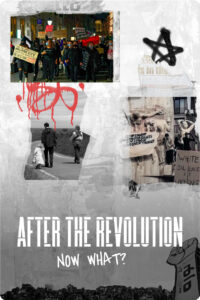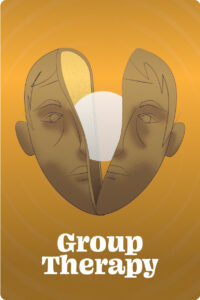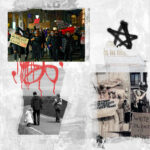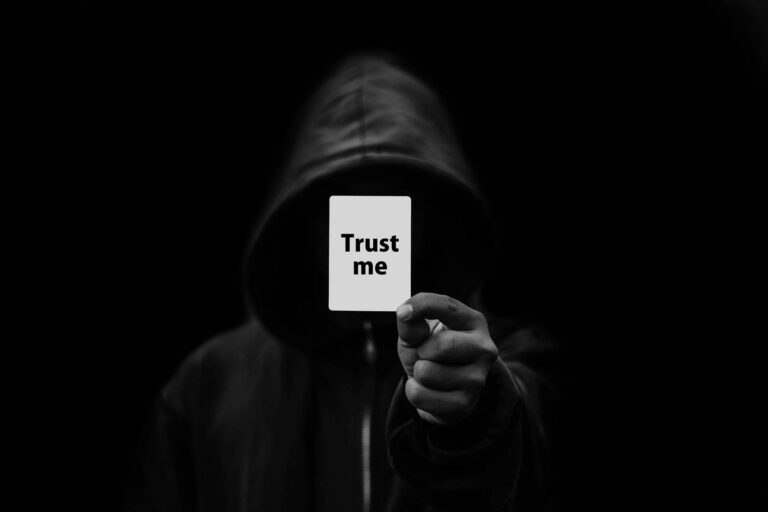What I am about to share is perhaps one of my most striking Indian memories, amongst tons of memories I have of India, thanks to twenty years of reporting and living in this land of crazy intensity. 860 languages, 33 million gods… I love the uniqueness and infinite complexity of this country where the best rubs shoulders with the worst, and where I have learned to say that the only generalisation that holds is that nothing can be generalised there.
November 2001: It was during my first stay in Jaipur. My arrival had been eventful. Once I had gotten off the bus from Nepal, I had taken a train bound for Rajasthan to Benares and had the awful idea of buying a bottle of adulterated water at the station which resulted in fourteen hours of hell. I only owe my survival to the porter who picked me up when I collapsed on the platform as the carriage doors opened.
The best part of when you think you’re going to die is that life takes on a new flavour. And in India, you’ve got flavour galore. At that time, Jaipur was preparing for Diwali, the Festival of Lights. People were rushing everywhere to buy garlands of flowers, candles, firecrackers, and honey cakes. In this euphoria, I had bought a ticket for the Raj Mandir, the largest cinema in Rajasthan. I didn’t care what was being shown: I simply wanted to experience an Indian film, in India, in a mythical hall, a masterpiece of Art Deco.
The Office of the United Nations High Commissioner for Human Rights described the text as “fundamentally discriminatory”. This is notably far from yoga’s values – whose name in Sanskrit means… “union”!
The blockbuster of the day was a biopic (a term not used at the time) about an Indian emperor who, in the third century BC, had abandoned murderous conquests in self-dedication to the non-violent principles of Buddhism and had established social peace throughout his kingdom: Asoka. On-screen, this exceptional ruler, the first to have united India, was played by Shahrukh Khan. Ah, Shahrukh Khan! 57 years old, 105 films, 28 million followers on Instagram. The king of Bollywood. The actor everyone’s crazy about. And Muslim, just like other big Indian stars, such as Salman Khan or Aamir Khan.
That day, I saw the whole cinema sing along in unison to Asoka’s songs and wildly applaud their national hero. Beyond the folklore though, the symbolism was strong: a Muslim, playing a Jain prince converted to Buddhism. “A problem?” What problem? Twenty years later, however, would this still be possible?
In October 2021, Shahrukh Khan’s 24-year-old son was arrested in front of television cameras on a yacht off the coast of Mumbai. The charge? Involvement in international drug trafficking. However, no substance was found on the young man, no blood test was carried out on him, and only small quantities of drugs were found in the belongings of the other passengers on board. After three weeks in jail, Khan Junior was released on bail, “but what is the meaning of this Kabbalah?” asks journalist Smita Singh. Like many intellectuals, she cannot help but make the connection between this event and the coming to power of the Hindu nationalists seven years earlier.
Flashback: In May 2014, the Bharatiya Janata Party (BJP), or the Indian People’s Party, had just won the general elections. Their leader, Narendra Modi, became Prime Minister. For many, his arrival gave them a sense of hope. The business community believed in him. He promised to deploy Indian power both economically and culturally. This country is unusual in this way: here, McDonald’s only managed to establish itself in 1996, twenty-five years after France, at the price of the adaptation of its recipes. Here, foreign cinema accounts for only 10% of cinema admissions – the rest being taken up by Hindi, Tamil or Telugu language productions. Here, the recent arrival of Uber has not made the profuse usage of rickshaws disappear from the landscape.
I was the first to perk my ears up when Modi said that he practised yoga. A follower of this ancestral discipline, a vehicle of well-being and serenity, couldn’t be fundamentally evil! I was also enthusiastic when he announced that he wanted to reassert the value of traditional medicines such as Ayurveda; to give them a ministry, to support their development abroad, to create hospitals combining allopathic care and an Ayurvedic approach… I know these medicines; I have written a lot about them, and I personally owe them a spectacular recovery. “At the time of the H1N1 crisis,” a doctor friend of mine told me, “The population was first asked, in case of symptoms, to go as quickly as possible to the laboratory.” But for most Indians, 68% of whom are rural dwellers, the ‘nearest laboratory’ does not exist. People were dropping like flies until Modi ordered a newspaper advertisement stating that infusion of papaya leaves could combat this type of infection. “And papaya trees are everywhere in India,” my friend continued. “That’s how the epidemic was contained.”
On the international scene, Narendra Modi deployed his strategy by going to the UN to speak in favour of the creation of Yoga Day. The world was seduced: within three months, he had won his case. On 21 June 2015, the new head of state appeared dressed in white, with his wise old beard and a stole in the colours of India tied around his neck, in front of 36,000 multicoloured carpets spread out on the asphalt of Delhi. “We are not just celebrating a day,” he said. We are training the human spirit to usher in a new era of peace.” Half an hour of physical and breathing exercises later, one could believe in this Prime Minister who was keen to work towards “harmony between man and nature” and “a world without tension” through the practice of yoga and the lifestyle changes it brings.
But here’s the thing: even if there is a legitimate interest in spreading the benefits of yoga and Ayurveda, political instrumentalization aside, Modi’s aim is less than altruistic. The man knows what he is doing: this ancestral knowledge is soft power, i.e. a tool for influence other than direct coercion. By promoting it, he not only flatters the patriotic fibre of traditionalist Indians, but he also buys himself an aura, a sympathy with the Westerners who love it – almost making those who are outside of his borders forget that he is above all an ultranationalist for whom “nation” does not mean “Indian” but “Hindu”.
Deemed too multi-faith, too secular and too libertarian, the film industry is in the crosshairs of fundamentalists, who spew their hatred on social networks whenever a production does not conform to their doxa
Just as a reminder, India is the world’s second-largest Islamic country after Indonesia, with 195 million Indians being Muslims, or 14% of its population. Yet, Modi has never hidden his enmity for this part of his fellow citizens. When he was in charge of Gujarat, a region in western India, anti-Muslim pogroms erupted, leading to the BJP leader being banned from travelling to the US and the European Union. But universal suffrage has been there. Since his election, the Muslim and Christian communities in India have been regularly harassed. According to the data journalism organisation India Spend, 84% of the victims of violence in India from 2010 to 2017 were Muslims, and 97% of these attacks were reported after May 2014, namely, after Modi took power.
In 2019, in the wake of his re-election, he instituted a law making it a condition for refugees to obtain Indian citizenship if they were not Muslims… Thus, blithely violating the principle of secularism of the Indian state. The affair triggered riots that left several dozen people dead, and the Office of the United Nations High Commissioner for Human Rights described the text as “fundamentally discriminatory”. This is notably far from yoga’s values – whose name in Sanskrit means… “union”!
With the Khan affair, Bollywood appears to be the BJP’s new Trojan horse. Because seen this way, Indian cinema is an oddity with its colourful aesthetics, its emotionality and its songs and dances: It is a powerful tool of soft power, both inside and outside the country. “Bollywood has always been a global cinema,” says Smita Singh. “Entertaining, socially conservative and uncomplicated in the face of the American entertainment industry, its films have been exported since the 1940s to the former USSR, the Middle East, Africa and South-East Asia.”
Cinema is the banner of cultural identity. Until now, Bollywood has been the bastion of an inclusive Indianness. And Shahrukh Khan, its cherished symbol. In 2004, in a blockbuster called Veer-Zaara, the actor played an Indian Air Force officer in love with a Pakistani woman. In 2010, in My Name Is Khan, he played an Indian Muslim who emigrated to the United States and was confronted with Islamophobia after the attacks of 11 September 2001. But “this Khan is no longer welcome,” bitterly notes journalist Debasish Roy Chowdhury, author of To Kill A Democracy: India’s Passage To Despotism. By attacking the superstar and his son, “Modi’s proxies and his Hindu nationalist trolls are sending a clear message that even the most powerful Muslims have something to worry about.”
Help us tell the world to you !
Frictions is launching its club : by supporting Frictions, you’ll be supporting a community of authors and journalists who tell the world through intimate stories!

In 2015, following the lynching of a Muslim man suspected of storing beef in his refrigerator, Shahrukh Khan took a stand against “religious intolerance and the growing tensions between communities” in his country – which did not go down well with nationalists. Deemed too multi-faith, too secular and too libertarian, the film industry is in the crosshairs of fundamentalists, who spew their hatred on social networks whenever a production does not conform to their doxa. In 2020, actress Deepika Padukone was thereby subjected to torrents of insults for playing a woman who was the victim of acid attacks; and in 2017, a BJP official put a price on her head for having participated in a film that he felt did not respect Indian history. She and her family had to be put under judicial protection.
According to The Wire magazine, the BJP even has a digital tool called Tek Fog, whose aim is to pervert democratic debate by saturating networks with hateful content, spreading fake news and harassing its opponents with hundreds of thousands of degrading messages. And it works: people are now at each other’s heads. Sooryavanshi, the latest film by actor Akshay Kumar, who is notoriously close to Narendra Modi and his views, is a box-office hit. Presented as “the action-packed adventures of an anti-terrorist squad in India”, it is playing a dangerous game of lumping the Muslim community with terrorists in a context where Islamophobic attacks are multiplying on Indian soil. Asoka, where did you go?









